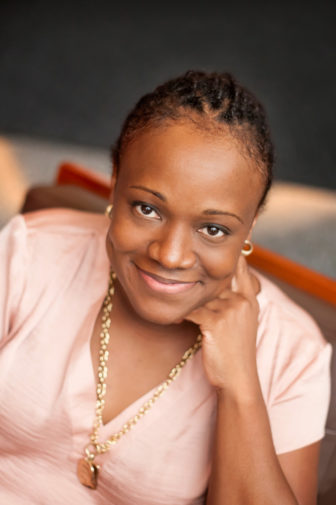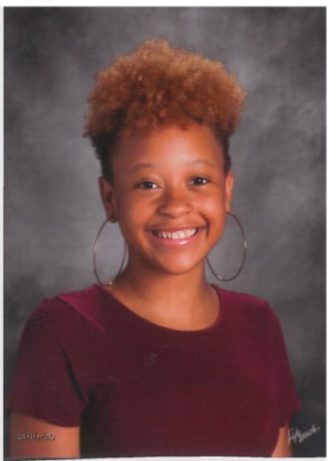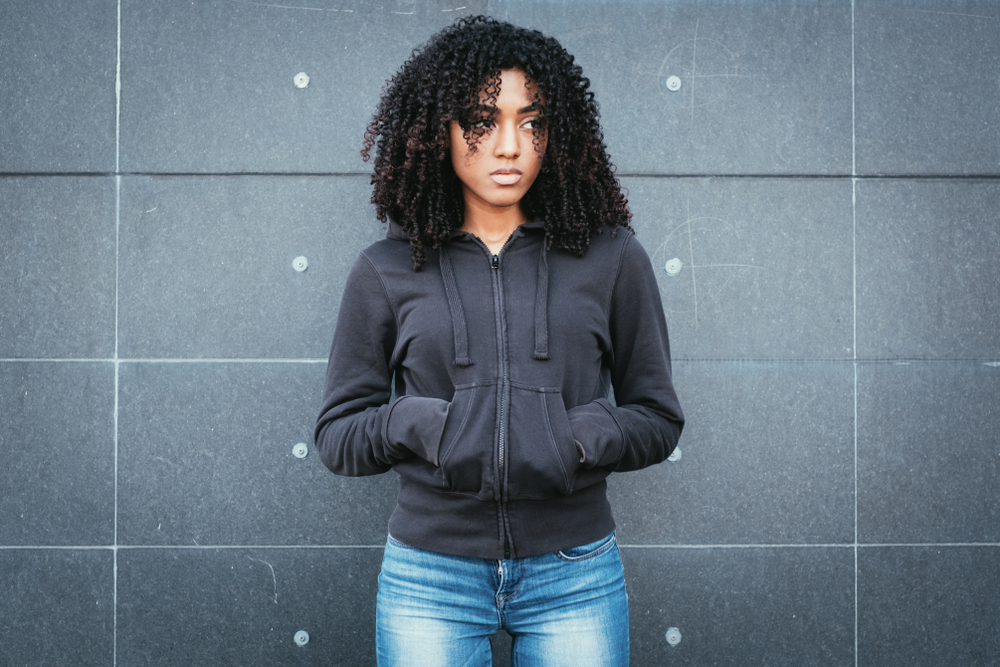![]() As sometimes happens in places plagued by economic hardship, gun violence is also a perennial problem in Philadelphia. In 2017, there were 1,408 shooting victims in the city; and of the 351 total murder victims, 83% were killed by guns. This year, as the Stoneleigh Foundation — along with many others in government, philanthropy and in the community — continued to grapple with how to address the gun violence problem, we welcomed an intern, Dhmyni Samuels, to join our staff for the summer.
As sometimes happens in places plagued by economic hardship, gun violence is also a perennial problem in Philadelphia. In 2017, there were 1,408 shooting victims in the city; and of the 351 total murder victims, 83% were killed by guns. This year, as the Stoneleigh Foundation — along with many others in government, philanthropy and in the community — continued to grapple with how to address the gun violence problem, we welcomed an intern, Dhmyni Samuels, to join our staff for the summer.

Marie Williams
Dhmyni, a rising junior at a Philadelphia area school, came to us through the Philadelphia Youth Network’s WorkReady program. WorkReady is designed to address the career skills gap by partnering with employers and youth-serving systems to build a coordinated approach to preparing young people for future employment, establish a talent pipeline and provide safe spaces for youth over the summer.
Dhmyni immediately became integrated into our operations at the Foundation, working on a variety of projects with and for us. Near the end of her internship, she began doing research into the root causes of gun violence in the city. The tenacity with which she attacked the issue and the depth of her focus was admirable but not surprising, as I had come to know Dhmyni as an intelligent, ambitious young woman with very big and very definite plans for her future.
For more information on Youth Gun Violence Prevention, go to JJIE Resource Hub | Youth Gun Violence Prevention
As she became more engaged with the research it occurred to me that I was making the same mistake many adults before me have made. I was relegating her and her work to a support role for mine. One of Stoneleigh’s core values is to honor young people as experts in their own lives and experiences, and treat them as such. So rather than have Dhmyni simply feed me information that I shaped, I asked her to write her own thoughts on gun violence in Philadelphia for this column.
On her final day at Stoneleigh, as I was leaving the office, I learned that six police officers had been shot. Thankfully, none of them were mortally wounded, and in a startlingly short period of time the incident disappeared from the headlines. In the meantime, Dhmyni’s piece languished on my computer while I wondered whether it was still relevant.
Perhaps the conversation around gun violence in Philadelphia and around the country would have changed somewhat. Mass shootings of civilians have become almost commonplace, but maybe with six members of law enforcement being shot, we might all be shocked into taking new and bold action locally and nationally?
Sadly not. So Dhmyni’s piece is as relevant now as it ever was. She agonized over it, telling me she thought it lacked clear solutions. “Well,” I told her, “don’t worry. Unfortunately, at the moment no one seems to have any of those.”
So here it is, the perspective of one young person from Philadelphia County who, like the adults around her, fears we may be focusing on the wrong things and that there may be no end in sight.
* * *
Gun violence in general is a very complicated issue to approach. While there are so many different possible contributions that feed into this problem, race, poverty, unsafe living conditions and victim-blaming seem to be major factors. Philadelphia needs to start paying more attention to this issue, because we are heading into a crisis.
Tianna, a 23-year-old African American entrepreneur who was known for motivating and inspiring others, was shot and killed on June 30 in North Philadelphia. Many have probably been wondering about the events that occurred before that terrible injustice. What was she doing? Where was she going? But while everyone is asking themselves all these useless questions, they fail to realize that it doesn’t matter. She was a young woman who had her whole life in front of her and it was taken away.
What does race have to do with gun violence in Philadelphia?
Like most victims of gun violence, Tianna is black; and like most victims of gun violence, so many people will never know her story. If Tianna’s skin wasn’t the color she was, I’m sure her face would be all over the news.
As a child, I always heard in media that people of color in the United States are responsible for gun violence and everything bad that comes with it. Because of this stereotype and the fact that most victims and perpetrators are black, society pays less attention to the issue.
However, according to history, the cycle of violence started because people of color were often forced into unsafe situations and given few options to protect themselves. As a result, many people turned to guns and other weapons for protection. The cycle has continued ever since. Even today, people of color, poor people and their kids are being raised to believe that you need weapons to feel safe.
How might poverty lead to gun violence?
Tianna was shot in North Philadelphia, arguably one of the most dangerous places in Philadelphia, especially at night. Kids in especially unsafe neighborhoods feel that weapons are a necessity in their everyday lives. Even if they don’t intend on hurting anyone with it, it can still cause a lot of trouble.
For example, there are kids who have used empty or fake guns to scare people just so they can have money to buy a new pair of sneakers or some food for their family. However, if they run into a situation where they frighten another person who has a loaded gun, their life could be over in a second. Children in these types of situations would be surprised how many people would be willing to spare a few dollars or buy them something to eat, but they turn straight to weapons because it’s what they’ve been taught.
The root causes
Most people who heard about Tianna, or any black or brown victim who was shot, probably jumped to conclusions and began questioning what they were doing to have been shot as if it’s automatically their fault. Victims of gun violence are often very different than the people media tends to portray them as. Most of them are not criminals, they’re just people trying to live their lives. Anywhere at any time, this is something that can happen to any of us. If we as a community could work together to try and fix this issue, then maybe future generations won’t have to live in fear.

Dhmyni Samuels
Poverty and the lack of safety have contributed to a gun violence crisis in Philadelphia. After reviewing the Philadelphia Police Department records, it is apparent that the 351 homicides Philadelphia experienced in 2018 is the highest murder rate we’ve seen since the last spike in 2007. Unless we break the cycle of learning and perpetuating violence, this number is only going to continue to grow.
Instead of worrying too much about those who are already gone, we should be focusing on trying to prevent the next murder so that the next family won’t have to suffer like Tianna’s family does. We need to stop focusing on the past and begin preparing for the future.
Gun violence is complicated. There is no clear-cut solution to this problem. However, I do know that before this issue can be tackled we really need to focus on why gun violence is occurring; we need to attack it from the root.
The first option that people always go to when it comes to preventing murder is to arm people with more weapons, when all that does is just add more oxygen to the fire. Instead, we should look into the reasons why people are using guns in the first place, like living in unsafe neighborhoods, and we should work to make sure that people have the things that they need so they don’t have to turn to guns in the first place.
If Philadelphia can help people find safe housing, supportive communities, food, clothes, toiletries, jobs and a good education, then they’ll be far less likely to turn to guns to solve their needs. A city working toward a peaceful community would save the lives of so many young people. We cannot leave this issue to a select group of people, either. It doesn’t matter if you live in Kensington or Chestnut Hill, the problem will not be fixed unless everyone steps in to help. An issue cannot be fixed unless all parties involved work together.
We are the future, but only if we live to see it.
Marie N. Williams, J.D., is senior program officer at the Stoneleigh Foundation. Before that she was immediate past executive director of the Coalition for Juvenile Justice and a longtime advocate for social justice causes.
Dhmyni Samuels is a junior at Germantown Friends School in Philadelphia. She recently completed a Philadelphia Youth Network WorkReady internship with the Stoneleigh Foundation, where she worked to dig deeper on issues affecting youth across the city.
